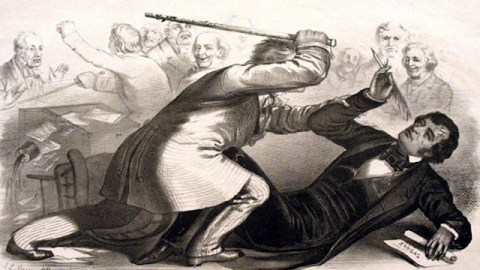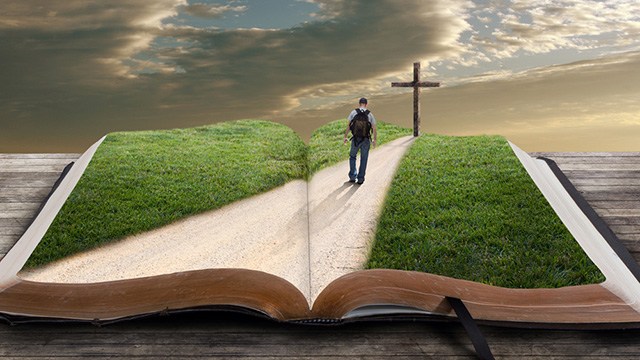Are Some Problems Too Big for Democracy?

“Morsi is an idiot,” says a friend of mine. “But he should have been voted out.” Like many people I know, he can’t endorse the military overthrow of a man who won a free and fair election (by a percentage that exceeded that of President Obama’s win, as The Economist points out this week). When we non-Egyptians try to grasp what is happening in that country, he feels, we should hold to our principle that democracy is the greatest good. I’m not so sure.
Reporting from Egypt (like this from Ben Hubbard and Kareem Fahim) tells of a country divided along a line that transcends divisions of party or class. It seems thousands of demonstrators in Egypt’s cities believe in what you could call the project of modernity: equal rights, the rule of law, material progress. They want a country in which religion does not dominate all aspects of life. The other thousands, who want Morsi back, are telling us they believe that religion should dominate public life. (Meanwhile, there are millions of people whose political concerns run to wanting a job and electricity and the ability to get a phone without having to bribe anyone. But in a crisis, it is the ideologues who define the sides—and in Egypt it seems they have defined the sides as pious versus secular.)
In the face of this difference, what does it mean to say you want elections to be respected and democracy to prevail? To my ears, that is a claim that the battle between Islamists and less religious Egyptians can be resolved by the apparatus of appeals to the people, party formation, voting, horse-trading and compromise. I think there are two problems with this view.
The first is that this democracy above all argument is tantamount to saying that fights over values—which are over the meaning of life and the point of society—are the same as a debate over, oh, how to tax tourist hotels or where to build a new highway.
They aren’t. Horse-trading and compromise are fine for matters that don’t involve our deepest feelings about right and wrong, but when it comes to “sacred values,” as the anthropologist Scott Atran and his colleagues have pointed out (for example, here), the calculus is different. You don’t compromise about a sacred value; you don’t offer half a loaf in order to get a free trade deal. It is because there is no trading over such matters that you know there are sacred.
When you have lost a democratic election to someone who fights against your sacred values, there is no consolation in the thought that you can barter over policy details in the legislature. Your values are either honored or dishonored. And so the machinery of democracy, once it is swept up in a tidal wave of conflict over fundamental values, tends to break down. This is, for those involved, often a terrible thing. But decades or centuries later, their descendants often admit that the breakdown was a necessary and ultimately beneficial event.
Consider the long-running battle in the 19th-century United States between those who valued the right to property and those who put human rights ahead. After much struggle, the apparatus of democratic government crashed and the issue was resolved by violence, on a scale Americans never saw before or since. Do you think legislative compromises and closely-reasoned court rulings could have resolved the conflict between Abolitionists and slave-holders? More importantly, do you think such machinery should have? One can imagine a United States in which democratic institutions had managed to contain the conflict, and a series of gentle compromises had allowed slavery to persist until, oh, 1910. From our POV in 2013, would that have been a good thing? (In fact, historical fashions have shifted on this question, as Tony Horwitz describes in this fascinating essay: It seems the American Civil War is often understood through the lens of the most recent conflict. After World War I, some historians saw the Civil War as the same sort of terrible accident, produced by incompetence and pig-headedness; after World War II, it became easier to see the Civil War once again as terrible but necessary way to the greater good.)
You might argue that I have failed to notice that democracy itself—government of the people, by the people and for the people— is itself a sacred value, which has to be cultivated. But this raises the second problem with democracy above all. We have learned, over the past few decades, that voters in elections are not nearly as consistent and clear as they are supposed to be. We know that voters can be—and are—swayed by irrelevancies and accidents. Ordinary people, unlike ideologues, don’t have consistent stands on “the issues” and have very little actual knowledge about them. (That’s why, as Dan Kahan points out here, it’s basically meaningless to say a majority of Americans accept the National Security Agency’s monitoring activities. The claim is based on pollsters putting that question to people who have no idea what the question means.) Meanwhile, much of the time, everyone involved in the democratic debate is engaged in a filtering process that rapidly assimilates welcome information while discounting facts that don’t accord with their values.
Given what we know about how voting actually works, how then can we say that any particular election result is “the will of the people”? Aren’t we obligated to say instead that the result is a snapshot of how effectively one side managed to motivate some people to think in a certain way for long enough to go to the polls on a particular day? This is, I admit, not a trivial measure. But it is a great deal less certain and enduring than the notion that “the people” have made their choice.
So elections are not the absolute measures of “the people’s will” that they were supposed to be. And for matters that many people truly care about—conflicts in which they are willing to risk everything and even die—the determining of “the people’s will” won’t settle anything.
This is why I can’t agree with my friend that democracy must prevail in Egypt. Wins and losses at the ballot box don’t seem capable, in any nation, of setting differences of absolute value. What happens instead, in any nation, is that the two sides fight and one loses—absolutely and unconditionally.
Rather than extol the value of democracy, perhaps we outside observers should accept that this is a conflict beyond the powers of democracy to contain.





